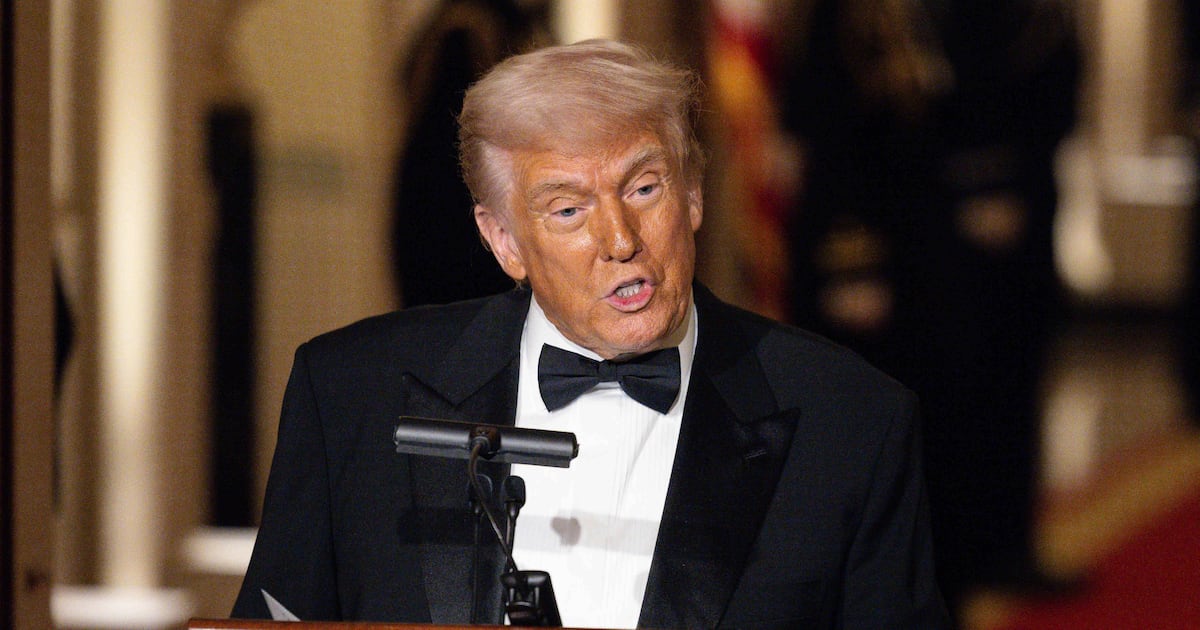
Tennessee Williams used poker’s old-school tough-guy ethos to underscore Stanley Kowalski’s unchecked male violence and potency in A Streetcar Named Desire, his 1947 masterpiece whose working title was The Poker Night. Much of the action revolves around a game in Stanley and Stella’s New Orleans tenement. As Stanley (played in the Broadway original by 23-year-old Marlon Brando) tells the only decent man in the room, “Get y’r ass off the table, Mitch. Nothing belongs on a poker table but cards, chips, and whiskey.” When Stella and her sister, Blanche, disrupt the men’s conversation by listening to music in the next room, Stanley barges in, rips the radio from the wall, throws it out the window, and slugs his pregnant wife. “Poker should not be played in a house with women,” Mitch explains impotently. In the last scene, Stanley is back at the table, having raped the vulnerable Blanche and schemed to have her institutionalized. In the final charged word of the play, he unwittingly underscores his own brutally seminal nature by declaring, “This game is seven-card stud.”
Ballmer calls Microsoft’s early business plan “basically an extension of the all-night poker games Bill and I used to play back at Harvard... Sometimes whole divisions would get moved just because someone bet two pairs against an inside straight.”

The savviest player in literature may be Fletcher, a shadowy hustler who never even makes an appearance in American Buffalo, David Mamet’s 1976 play set in a Chicago pawn shop. Yet Fletcher’s poker talent (or is it cheating skill?) makes such an impression on the play’s talkative burglars, Don and Teach, that their off-stage games with him come vividly alive for the audience.
In the previous night’s game of five-card draw, Fletcher was again the big winner. During a key hand, Don was dealt a pat straight but lost a huge pot to Fletcher, who drew two cards to complete a flush in hearts. And now, as Don and Teach wait for Fletcher to arrive to spearhead a midnight burglary of a wealthy coin collector’s apartment, Teach (who wants to do the break-in solo) asks Don, “He takes two on your standing pat, you kicked him thirty bucks? He draws two, comes out with a flush?”
While Don ponders the unlikelihood that Fletcher would draw two to a flush, Teach adds a kicker: “And spills his fucking Fresca?” Don, forced to remember, says, “Yeah.” “And we look down?” “Yeah.” “When we look back, he has come up with a king-high flush.” Teach pauses to let this sink in. “After he has drawed two.” Pause. “You’re better than that, Don. You knew you had him beat, and you were right.”
When Don, who prefers to see the good in his friends, stubbornly insists, “It could happen,” Teach tells him he’d folded the same king of hearts that completed the flush. Fletcher, that is, must have snatched it from the discard pile while they were glancing down at the spill. But instead of denouncing Fletcher, Don demands to know why Teach didn’t say anything then—a fair enough question, and one to which Teach has a variety of self-serving answers. So much depends on whether Fletcher cheated or won on the square that the hand against Don becomes a hilarious Rorschach test of whether Fletcher or Teach should be trusted to break into the apartment and return to share the spoils. What better means than a poker game, after all, to establish who is the more trustworthy burglar? Even more so than Rounders, The Sting, The Cincinnati Kid, or even Mamet’s House of Games, American Buffalo perfectly dramatizes poker’s deceptive logic and honor-among-thieves morality.

Then we have poker’s famously seminal influence on Bill Gates during his four semesters at Harvard (1973-75). Twenty years later, in The Road Ahead, Gates says the marathon dorm sessions were at least as productive and intellectually stimulating as his time spent in class. Dorm-mate Steve Ballmer says Gates “played poker until six in the morning, then I’d run into him at breakfast and discuss applied mathematics.” Ballmer calls Microsoft’s early business plan “basically an extension of the all-night poker games Bill and I used to play back at Harvard... Sometimes whole divisions would get moved just because someone bet two pairs against an inside straight. People were always wondering why [co-president] Jim Allchin ended up with so much power. What can I say? He bet big and won big.” Ballmer’s conclusion? “You gotta know when to hold ’em and when to fold ’em.”
Gates put it this way: “In poker, a player collects different pieces of information—who’s betting boldly, what cards are showing, what this guy’s pattern of betting and bluffing is—and then crunches all that data together to devise a plan for his own hand. I got pretty good at this kind of information processing.” In fact, the planet’s reigning e-businessman—and most copious philanthropist—won a significant portion of Microsoft’s startup costs in those dorm games. And it wasn’t just dollars reaped to be parlayed a millionfold; it was mainly, says Gates, that “the poker strategizing experience would prove helpful when I got into business.”

In Nixon Agonistes, Garry Wills uses poker in the World War II Navy to illuminate the character of our 37th president. Wills zeroes in on Nixon’s “iron butt” and the fact that he “got to know his fellows, not in foxholes but across the tables, in endless wartime poker games.” Since most American fighting men played, Nixon’s participation could have been seen simply as part of his lifelong campaign to be a regular guy, but Wills shows how much more to it there was. Nixon, he writes, “always did his homework. He found poker’s local theoreticians, men willing to play and discuss, replay and debate, out of sheer analytic zeal.” Nixon eventually took home $8,000—a genuinely whopping haul in the 1940s, enough to finance a successful campaign for Congress. His Quaker mother may not have approved of fighting or gambling, but he had “eased his way into the military past her scruples. The war became a moral hiatus. Besides, motive is what matters, and [Nixon’s] motive was pure, was puritan. He was not playing games; with him it was a business…Show him the rules, and he will play your game, no matter what, and beat you at it. Because with him it is not a game.” Looking ahead to his subject’s checkered political career, Wills adds: “It helps, watching Nixon’s ‘ruthless’ single-mindedness when bigger pots have been played, to remember those poker days.”

The Civil War, published in three magnificent volumes between 1958 and 1974, is the first work of history to explore how the game’s lore and logic fits into the overall scheme of America’s most definitive conflict. While Wills uses Nixon’s poker-playing as a colonoscope into the bowels of a politician he felt little sympathy for, Foote has great reserves of empathy for the game and its players. His paternal grandfather had lost the family’s considerable fortune playing stud, often while drunk. Perhaps the only upside of the squandered inheritance was that his grandson learned how profoundly the game could affect both the person who played it and the people who depended on him.
Foote’s 2,836-page narrative makes vividly clear how integral poker was to the Northern and Southern war efforts, from the penny-ante games of enlisted men through the do-or-die showdowns of generals—that the feints, bluffs, and aggressive poker mind-set of Grant, Lee, Forrest, and others often determined how critical battles played out. He quotes a friend of “Fighting Joe” Hooker on the gumption of that charismatic Union commander. “He could play the best game of poker I ever saw, until it came to the point where he should go a thousand better, and then he would flunk.” This shortage of intestinal fortitude had enormous military consequences. Having been placed by Lincoln at the head of the Army of the Potomac in 1863, the hard-drinking Hooker gave up alcohol to remain clear-headed as he faced off with Lee—though a belt of good moonshine might have bolstered him when the chips were down at Fredericksburg. On the verge of crushing the rebellion with a single decisive blow, Hooker held 2-to-1 advantages in men and artillery, a commanding position on high ground from which to annihilate Lee’s infantry, with an open path to Richmond after that. But when Lee’s pinned-down veterans suddenly took the initiative, Hooker lost his nerve—“flunked,” as his friend might have put it. When Hooker ordered a retreat instead of a counterattack, his generals refused to believe it. And yet it was true. Even more bizarrely, Hooker then ordered his main force to take a vulnerable position in the Battle of the Wilderness, where he soon suffered a devastating defeat by Lee and Stonewall Jackson.
• Anthony Holden: Poker’s Young New SuperstarThe consensus among historians now is that Lee, in the words of John Steele Gordon, “played Joseph Hooker like a fiddle, bluffing him into a defensive posture when he had overwhelming superiority.” Not only Hooker, of course. Early in the war, as Lee desperately searched for reinforcements, he bluffed George Meade into thinking the Army of Northern Virginia was at full strength; Meade’s failure to attack him bought Lee invaluable time. When the battles were finally joined, Lee’s knack for misleading, intimidating, and outmaneuvering much larger armies was often enough to carry the day.
Plus: Check out Book Beast for more news on hot titles and authors and excerpts from the latest books.
James McManus has covered poker for The New York Times, Los Angeles Times, Harper’s Magazine, Card Player, ESPN.com, and The New Yorker. Positively Fifth Street, his memoir of finishing fifth in the World Series of Poker championship, was a New York Times bestseller.






